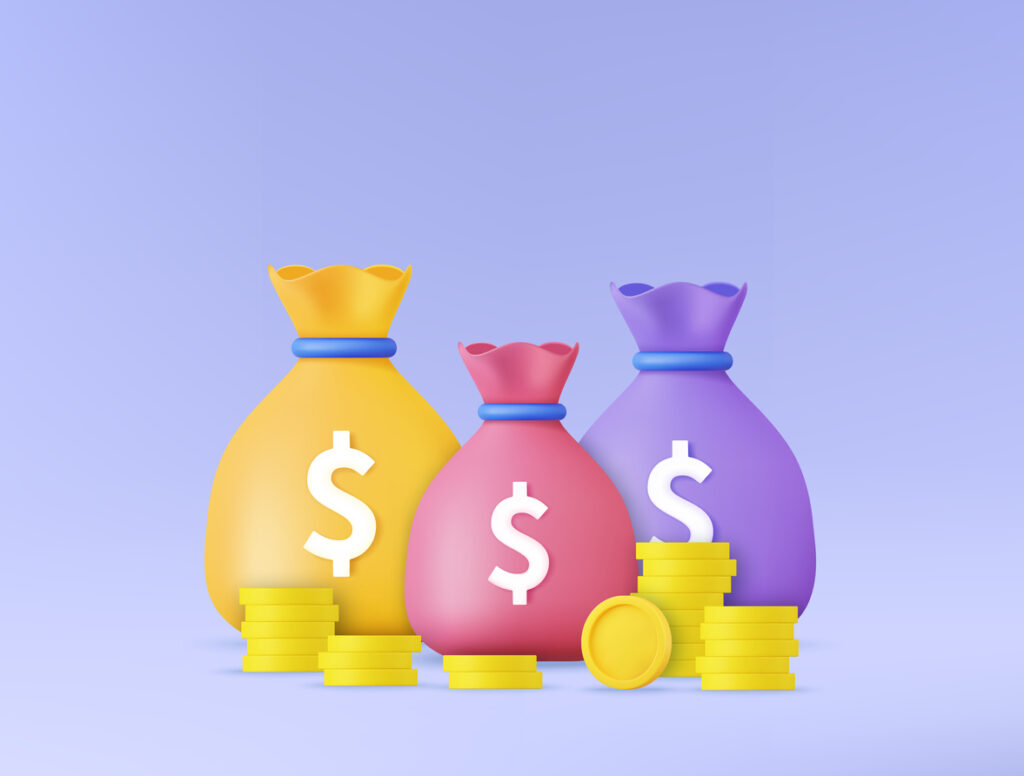As a first-time home buyer in the Greater Toronto Area there’s a lot to learn. This is likely the biggest investment you’ve ever made, and the more you know about buying your first home, the better your decisions will be. So sit back, relax, and prepare to learn how to buy a house or condo.
Mortgages & Financing
Getting Pre-Approved for a Mortgage
The first step to buying a house or condo is determining how much your bank will lend you. Sometimes this begins with a mortgage pre-qualification, which is simply an estimation of what you can afford based on some basic financial information (supplied by you).
However, it’s important to take that pre-qualification to the next level before you fall in love with a house, by getting pre-approved for a mortgage. A mortgage pre-approval will be in writing (generally valid for 90 or 120 days) and will include an interest rate guarantee.
A preapproval is precise, detailed, and most importantly verified—so you’ll need to supply documentation to prove any numbers you give your lender. To complete a preapproval, your lender will look at your:
- Income
- Debts
- Downpayment
- Credit history
Completing this step will ensure you know how much mortgage you can get, which helps you know what price range of homes you should target in your search, allowing you to focus your house-hunting efforts and eliminating the risk and uncertainty of financing once you find your perfect home.
Of course, a pre-approval is not a guarantee that a lender will lend you a certain amount of money for any home. Lenders want to know that the home they are purchasing with you (by lending you the money) is worth what you paid. In Toronto, banks generally order an independent appraisal of a home before they advance the mortgage money.
Mortgage Decisions
Mortgages can seem intimidating, especially for first-time buyers. Once you’ve qualified for a mortgage, you have to make some basic decisions: mortgage term, amortization, interest rate, and type of mortgage.
Mortgage Term and Amortization
The mortgage term and amortization period affect the amount of money you can borrow (and thus the price of the home you can buy), and dictate how much your monthly payment will be.
The mortgage term is the amount of time a lender will loan you money – typically from 6 months to 5 years. When the term is up, the remaining amount is payable in full unless you arrange new financing for another term (which is what typically happens). The mortgage term you choose will depend on the risk and uncertainty you’re willing to endure. If you choose a one-year term and interest rates increase drastically during that year, will you still be able to afford your home?
Few (if any) of us can pay off the entire principal of a large mortgage in a six-month or even a five-year term. Imagine how big your payments would be! To help you out, lenders calculate or amortize the mortgage payments over a much longer time, often as long as 25 years. They aren’t loaning you the money for a single 25-year period–they’re just calculating the payment schedule as if it will take you that long to pay back the principal plus interest. You will probably renew the mortgage several times during the amortization period, and you always have the option to change the amortization depending on market conditions or your financial situation. The longer the amortization period, the lower your payments will be – but this also means you’ll pay more interest.
Payments
Most mortgage payments consist of two parts: principal and interest. This is known as a blended mortgage payment. Each payment reduces the balance owed on the mortgage by the portion of the payment that is credited to the principal. Over time, the proportion of your payment that reduces the principal balance will increase. The faster you can pay down the remaining balance, the less total interest you’ll pay. There are many ways you can pay down your mortgage faster, from accelerating your payments (i.e. 26 payments per year instead of 24) to making lump sum payments on your mortgage; your lender can help define the right strategy for you.
Interest Rates
The interest rate is one of the biggest contributing factors to the amount you pay, both monthly and over the life of your mortgage.
Interest is the cost of borrowing money. Interest rates fluctuate with the economy. The interest rate you commit to at the beginning of the term can significantly impact the amount you pay each month for your mortgage. There are two basic types of interest rates used in mortgage products: fixed-rate and variable-rate.
- Fixed-rate mortgage – When you choose a fixed-rate mortgage, you’re committing to a single interest rate that will not change for the term of your mortgage. This strategy equalizes the amount of your monthly payment that repays the principal vs. interest. Fixed-rate mortgages are great in an economy where interest rates are increasing, as your payments are locked in and do not change. But in an economy where interest rates are decreasing, you could be stuck paying more interest than necessary.
- Variable-rate mortgage – With most variable-rate mortgages, your monthly payments float in relation to the bank’s prime interest rate. If rates go up, your payment goes up. Variable-rate mortgages can protect you if interest rates are high when you arrange your mortgage; when rates fall, you’re not stuck with high-interest payments. Some banks have variable-rate mortgages with fixed payments, meaning that the amount you pay doesn’t vary during the mortgage term, but the percentage of principal repaid varies with the current rate.
Types of Mortgages
- Conventional mortgage – Aptly named because they are the most common type of mortgage. The lender will loan you up to 80% of the appraised value or purchase price of the property (whichever is lower), and you need to come up with the other 20% as a down payment.
- High-ratio mortgage – When you don’t have the 20% down payment required to get a conventional mortgage, a high-ratio mortgage can advance you up to 95% of the home’s appraised value or purchase price. However, since you are borrowing more than the usual 80%, the government insists that the mortgage is insured against default and that you pay the insurance cost. That cost can be a few per cent of the mortgage amount and is added to the mortgage principal.
- Second (and third) mortgages – These are additional financing arrangements behind an existing mortgage, also secured by your property. Secondary financing is generally arranged at a higher interest rate and for a shorter term than the first mortgage.
Read: How Much Can I Afford? Setting Your Home Buying Budget
Government Programs & Incentives for First-Time Buyers
There are various programs to help Ontario first-time buyers:
- The Home Buyer Plan – allows you to borrow from your RSP’s, tax-free
- Land Transfer Tax refunds – partial refunds in Ontario and Toronto
- First-Time Home Buyer Tax Credit – a tax credit of up to $750
- First Home Savings Account – a way to save for a downpayment, tax-free
We wrote a guide detailing the first-time buyers’ programs and incentives here.
Read:
- Setting Your Budget
- Downpayment Strategies for the First-Time Buyer
- How to Get a Mortgage
- Land Transfer Tax
- Government Programs for First-Time Buyers
Developing Your Wish List
Knowing what you need and want in your home is critical. What are your must-haves, your nice-to-haves, and your no-way-absolutely-nots? How many bedrooms do you need? What kind of outdoor space do you want? What about countertops, appliances, and floors? You can’t get what you want if you don’t know what you want.
Of course, location will be a big decision. Which Toronto neighbourhood makes you feel at home? We compiled a list of 88 Questions to Ask When Choosing a Neighbourhood. Check out our in-depth Neighbourhood Guides for the inside scoop on the GTA’s hottest neighbourhoods.
Picking Your Team
Buying a house or condo will likely be the biggest purchase you’ll ever make – but don’t worry, you don’t need to do it alone. Your team will include:
-
- A great real estate agent who works exclusively in your best interests. Think of your REALTOR as the quarterback of the home-buying process.
-
- A lender – a bank or mortgage broker to take you through your financing options
-
- A real estate lawyer to help with the legal aspects of the purchase
There are thousands of professionals out there (of varying quality), so ask your friends and family for recommendations, read online reviews, do your research and don’t be afraid to interview multiple people.
Related:
- Choosing a REALTOR: For First-Time Buyers
- How a REALTOR Represents a Buyer.
- 10 Questions To Ask When Hiring a REALTOR
- Your Real Estate Lawyer
Costs to Buy
In addition to your down payment and monthly mortgage payment, you’ll also need to budget for closing costs, including land transfer taxes and legal fees.
Closing Costs: Before Closing
- Deposit (usually 5% of the purchase price, paid within 24 hours of your offer being accepted)
- Property Appraisal ($400- $500, often paid by the lender)
- Home Inspection ($400-700, paid to the home inspection company at the time of the inspection)
Closing Costs: On Closing
- Balance of Purchase Price (the purchase price less your initial deposit)
- Legal Fees ($1,800-3,000, depending on the value of the home)
- Title Insurance (sometimes included in your legal fees, $250-$400)
- Mortgage Broker Commission (if applicable, usually paid by the lender)
- Property Survey (if required – $1,000-$2,000. In Toronto it is rare for a survey to be done for a purchase)
- Ontario Land Transfer Tax (varies depending on the purchase price – see our Land Transfer Calculator)
- Toronto Land Transfer Tax (varies depending on the purchase price – see our Land Transfer Calculator)
- Property Tax Adjustment (reimbursement to the seller of property taxes they paid beyond the closing date)
- HST (generally only applicable on new construction condos and houses, or properties with a commercial element)
- Tarion Warranty Fees (warranty on new construction condos and houses only, not resale) – click here to estimate Tarion Fees
- Provincial Sales Tax (only applicable on chattels purchased from the seller– variable)
- Adjustments for Utilities/Condo Fees/etc (reimbursement to the seller for prepaid utilities, etc.)
- CMHC Insurance Premium (insurance premium charged if you have less than 20% down payment – click here to estimate CMHC insurance)
Closing Costs: After Closing
- Moving Expenses ($1,000+)
- Utility Connection Charges (variable)
- Redecorating and Renovating Costs (variable)
- Immediate Repair and Maintenance Costs (variable)
Budget for Ongoing Costs
Once you’ve determined your maximum mortgage amount and budgeted for your down payment and closing costs, it’s important also to consider ongoing costs associated with homeownership, including:
- Property taxes
- Home insurance
- Water/sewage/garbage/recycling
- Hydro/gas
- Condo fees
- Maintenance (budget 1-3% of the value of your house per year to be conservative)
Home Search
Now that you are pre-qualified for a mortgage, have narrowed down your search, and picked a great Toronto REALTOR to work with, it’s time to start looking at listings and properties. While realtor.ca is a good place to start searching for homes, your real estate agent will send you custom listings that match your criteria.
Pro Tip: Ask your agent to set you up on REALM – a tool that lets you control your home search with live-time updates from the MLS.
House hunting involves screening listings electronically, previewing properties online, and then finally going out to look at homes. This is your opportunity to get a feel for the different Toronto neighbourhoods, refine your wishlist, and ask questions. While a wishlist is a useful tool in deciding which properties to visit, the truth of the matter is that most people walk into their perfect home and just feel it. Of course, it helps when it satisfies your needs and wants too, but don’t underestimate the power of ‘just knowing’.
Read: Like a Pro: Searching for a Home Online
Offers
Offer Decisions
Your house-hunting efforts have paid off, and you’ve found the right home: it satisfies your wants/needs, is in your price range, and feels right. The offer process is both exciting and nerve-wracking.
In Ontario, real estate offers must be in writing and will be in the form of an Agreement of Purchase and Sale (APS). The APS is a legally binding document which contains:
- Price
- Amount of deposit (usually 5% of the purchase price, due within 24 hours after the offer is accepted)
- Closing date (the date you take possession)
- Inclusions (for example, appliances, big screen TV, lighting, blinds, etc.)
- Conditions that need to be met for the deal to go through
Conditions can be an important part of the offer, giving you time to perform due diligence. Below are links to in-depth information about each of the most common types of conditions:
- Financing condition
- Home inspection condition
- Status certificate review condition
- Sale of property condition (not common in Toronto)
Your real estate agent will help you determine a fair price and guide you on what other terms and conditions to include.
Making The Offer
When you buy a house or condo, there is a LOT of paperwork. We wrote a blog that explains the paperwork you’ll be asked to sign – make sure to become familiar with it before offer time.
It’s also important to understand that your offer is only valid for a certain amount of time – we call this the irrevocable period – the time period that the seller has to consider your offer. After the irrevocable period has expired, if the seller hasn’t accepted your offer (or made a counter-offer), your offer bursts into flames (theoretically), and you aren’t committed to it any more. Irrevocable periods vary, but we’ve seen everything from one hour to several days. Typically in a hot real estate market, offers are valid for only a few hours, so the whole process could happen very quickly once the offer is signed.
Offer Presentation
These days, offers are usually presented and negotiated virtually, though occasionally, the agents do still meet in person. If the offer is in person, both agents and the sellers are present – the buyers are usually nearby in a cafe or pub in case of any negotiations.
Negotiations
When the seller receives your offer, they can do one of 3 things:
-
- Accept the offer as is – They agree to the terms and conditions you’ve offered and sign it. Congrats!
- Sign back the offer with different proposed terms (for example, at a higher asking price, with a different closing date, etc.). This now becomes a counter-offer from the seller back to the buyer. This is the most common scenario–usually, a number of back-and-forth negotiations take place with each side making concessions until, hopefully, a mutually agreeable contract is reached.
- Decline the offer – If your offer is totally unacceptable to the seller, they have the option of simply declining it–no negotiation, no anything.
During these back-and-forth negotiations, you may need to compromise on small things, but a great REALTOR will work hard to get you what you want.
If Your Offer is Accepted…
If you and the seller reach an agreement on price, terms and conditions, the APS is signed and acknowledged. The buyer must now provide a deposit to the listing brokerage (held in trust), usually around 5% of the purchase price, within 24 hours of the agreement being reached.
If the offer does not contain conditions, the agreement is considered firm—meaning you (or the seller) can’t back out!
Meeting Conditions
Conditions are requirements in the Agreement of Purchase and Sale that must be met for the sale to go through. Remember: a financing condition allows the buyer to confirm their financing with their lender; a home inspection condition allows the buyer to inspect the property with an inspector; a status certificate review condition allows a lawyer to examine the financial and legal health of a condominium corporation.
Once the conditions have been met, more paperwork must be signed, and then the sale is considered firm – meaning you can no longer back out!
Making an offer on a house or condo is an exciting (but often stressful) part of the home-buying process. A good REALTOR can help reduce stress by preparing you for potential scenarios ahead of time, helping you choose a strategy, guiding you through the process and advising you of your options (and possible outcomes) at each step. It’s the biggest financial step of your life – but remember, we do this every day!
Read: My Offer Was Accepted: Now What?
Bidding Wars and Multiple Offers
In the event that multiple buyers are bidding on the same house at the same time, there may be a bidding war – or a buyer looking to avoid a bidding war in a hot market might choose to make a “bully offer.” We wrote detailed blogs covering those scenarios here:
- Bidding War Basics
- How to Win a Bidding War
- Bidding Wars – How to Get Your Head Into the Game
- All About Bully Offers
Closing
You’re almost a homeowner! Closing is the point at which the ownership and possession of the property are transferred from the Seller to you. It takes place once all the legal and financial obligations have been met. Closing the purchase will be a team effort: in addition to yourself, your lawyer and your lender will all be involved in helping close the deal.
Read:
- Next Steps Once Your Offer is Accepted
- Closing Costs
- Home Insurance for First-Time Buyers
- How to Move Without Getting a Divorce
Working with BREL
Here are a few of the reasons to consider hiring the BREL team to help you buy your first home:
- We’ve helped a LOT of first-time buyers – our expertise has been honed by facilitating over 2000 transactions and over $1 billion in real estate sales.
- Our reputation precedes us – we have 750+ 5-star reviews
(you can read them here)
- We help buyers in Toronto, Mississauga, Oakville, Hamilton and Durham Region
- We’re responsive and available. We pride ourselves on being easy to reach and quick to respond. We know buying your first home can be stressful, and we’re here to answer your questions and provide guidance whenever you need it.
- Pricing and negotiation – We’re really, really good at this. Every BREL agent is a Certified Negotiation Expert.
- Bespoke service – No two first-time buyers are alike, so we tailor our services to meet your unique needs.
- No BS – It’s not just part of our slogan – we pride ourselves on being upfront and honest with our clients.
Contact Us
Resources for First Time Buyers
Latest Buyer Blogs










